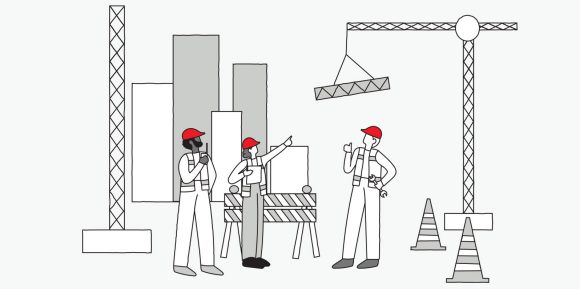The UBS teaming difference
How to best serve clients with an advisor team model

How to best serve clients with an advisor team model

As a highly productive advisor, is it time for a change? Is there a different culture or compensation structure to explore? If so, you have potentially heard about UBS’s advisor-centric culture where everything we do is tailored to help financial advisors and UBS Signature Teams serve their clients.
With the growing trend toward advisor team models, how can you better understand the UBS commitment to teams? And if you are a sole practitioner now and thinking about a shift to a team structure, what is the UBS process to get you there? This article provides a broad overview of how our UBS Signature Team platform works and why the advisor team model is so important to us.
Clients appreciate the fact that multiple professionals with complementary skill sets are thinking about their needs.
The benefits of an advisor team model
Teaming allows advisors to be more productive, offer their clients greater diversity of thought and provide highly responsive service. It is an inflection point for both your career and your business. Whether you are part of a team today or thinking about forming a team in the future, teaming is focused on what is best for you and your clients.
“We believe in the importance of teams because our clients truly value the teaming approach,” says Jason Chandler, Chair GWM Americas. “With our UBS Signature Team structure, clients appreciate the fact that multiple professionals with complementary skill sets are thinking about their needs. Our research shows that investors prefer knowing someone is there 24/7 to help them.”
Here are five reasons why more Financial Advisors are shifting to our UBS Signature Team model:

Teams grow faster than sole practitioners.
Research shows that teams are more productive than sole practitioners. Teams provide improved efficiency in process and structure, allowing you to focus on business growth activities such as prospecting and deepening client relationships.
Teams solve clients’ most complex needs.
Teams allow for the development of specialties. When each team member has a specific role and responsibility, there are more opportunities to add value.
With teams, clients gain access to all the firm has to offer.
Teams allow you to highlight complementary skills and deliver a deeper and broader array of services and solutions. As a team member, you can discover additional capabilities to offer clients, such as a comprehensive planning process or a more proactive service model.
Teams offer diversity of thought.
Multiple professionals who possess diverse perspectives enhance the decision-making process. Teams do not rely on status quo thinking but instead look to explore innovative solutions.
Teams provide for a smooth transition.
Our Aspiring Legacy Financial Advisor (ALFA) program, which is among the most competitive transition programs in the industry. Our ALFA program rewards you for transitioning your business on your timeline to UBS Financial Advisors of your choice while preserving client relationships.
The UBS teaming culture: a platform to support your growth
If an advisor is interested in joining a team at UBS, we have a process in place and tools to support team formation. A local UBS Field Leader will collaborate with you to find the right avenue for teaming. A Field Leader can also help you identify the opportunities that will put you in a position to grow, and all of this happens prior to your start at UBS.
UBS Signature Team platform: Structure your team to support your business and practice objectives
For advisors looking to grow their business, our teaming structure makes sense. In fact, as of the end of 2021, more than 60 percent of our Financial Advisors operated in a team structure. With many options to choose from, we design our teaming structure to be flexible and address how you want to run your business. Our teaming platform offers two options, all with the opportunity for enhanced compensation:
Our commitment to teaming
At UBS, we focus on what is best for Financial Advisors and clients. We believe in teaming because our Financial Advisors are more productive, and our clients prefer working with a team of true collaborators. Suppose you are interested in a career at UBS and want to join a team right away. Our field leadership is ready to help you explore UBS Signature Teams and provide you with the right support.
How to think about the teaming opportunity
How ready are you to make a change? At the start, it is essential to think about and understand your current situation:
If you think you might want to join a team or form a team as part of your transition to UBS, we can help.
To learn more about how the UBS approach to teaming can benefit your business or to apply for a UBS Financial Advisor role, submit your contact information to be connected with a Field Leader.